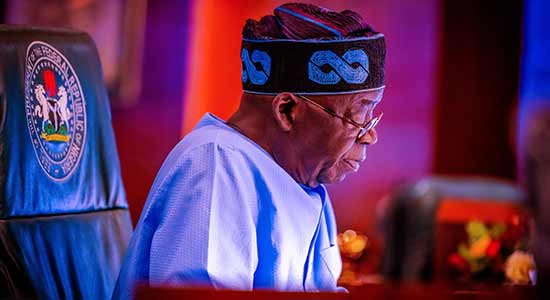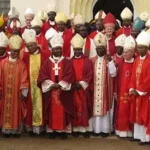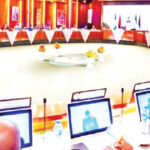At a time when every Nigerian is looking forward to a rebirth of the country following recent dips in its socio-economic fortunes, it is not out of place that any tendency which does not readily conduce to reversing the pallid situation, immediately attracts some measure of suspicion. Several developments and tendencies within and outside the country – but which impinge on the welfare of the citizens, have reinforced the disposition of Nigerians to question the ethnocentric essence of any public policy initiative or action of the administration. In the context of pro-Nigeria ethnocentrism, is the consideration of how protective and promotional of Nigeria’s national interest, is any such public policy initiative and process. Put simply, ‘Nigeria First’ is the welcome credo for the time.
This must be the lot of the 2023 Samoa Agreement between the European Union (EU) and the Organisation of African, Caribbean and Pacific and Caribbean States (OACPS), of which Nigeria is a signatory, and which is now trending across the country, with a spin. Hopefully the earlier turns on its fortunes will settle down quick enough to give room for its more fundamental angles to be addressed.
Notionally, the multilateral agreement which is named after the Pacific island of Samoa where it was initially signed on November 15 2023, by members of the OAPS and EU, has as its stated intendment, the promotion of better relations between the member countries of the two global blocs. Hence, contained in the various provisions of the agreement are clauses that call for a virtually limitless scope for multilateral interfacing between the respective member countries. It is the outcome of several previous efforts at promoting regional collaboration firstly on the African continent and later across the respective continents.
And that is what dictates not only a caveat for Nigeria as a country given its present socio-economic circumstances, but also a wake-up call. Put succinctly, the Samao agreement constitutes a welcome opportunity for Nigeria to be disposed for more constructive participation in the wide room for international collaboration, especially in export trade. This is a multilateral agreement among nations with unequal economic endowments, disparate political systems, as well as cultural orientations.
- The Samoa agreement: The benefits as compared to other similar agreements with the Global South
- Embracing off-grid energy solutions for rural Nigeria
So to belong without a discretional disposition could lead to adverse implications for the country as there are numerous instances where toxic deals and agreements were concocted and signed on behalf of the country by compromised diplomats and other officials, which have led not a few Nigerians now to be more disposed to see every such foreign transactions and pacts with justified suspicion.
An immediate example is the still vexatious 2002 Bakassi Peninsula debacle in which the government of former President Olusegun Obasanjo traded away a significant portion of Nigeria’s territory for reasons that hardly resonated with the nation’s wider interests. A major lesson which the Bakassi debacle taught Nigerians is that the complement of the country’s foreign missions, diplomats and sundry officials who are vested with the responsibility of promoting its foreign relations should not deliver the final word on agreements with the rest of the world. In the same vein, the lessons from the Bakassi affair inspired the country’s resolve for caution in managing the oil rich tourist haven Tongeji Island in Ogun State but which is very close to Porto Novo in Benin Republic. .
With respect to the Samoa Agreement, the options open to Nigeria include resolving to participate no more as one of the underdogs in the coalition, as has been in the past whereby the country served as a net importer of sundry goods and services, even from less endowed nations. This time the challenge facing the country with respect to the Samoa deal is to upgrade its capacity to take advantage of the humongous opportunities for boosting the economy, creating jobs and projecting self as an economic power in its own right. This challenge, however, demands a new mind-set from the various governments at various tiers, towards spawning a new productivity regime across the country.
In this respect lies the need for the Renewed Hope agenda of the Tinubu administration to reorient the country towards producing for the global market, as only the export market can guarantee the upgrade of the economy to a sunny side. Yet a resort to a revolutionary export regime cannot manifest with the present state of economic depression dragging the country down. With a wide swath of local factories and industries facing gloomy times, others shut down and multinational shipping out of the country, the Tinubu administration has its job cut out for it, as the need to redouble efforts to return the country to winning ways.
That is only when the country can benefit from the Samoa deal, with its wide scope for Nigeria’s exports to both nearby countries as well as distant ones.

 Join Daily Trust WhatsApp Community For Quick Access To News and Happenings Around You.
Join Daily Trust WhatsApp Community For Quick Access To News and Happenings Around You.


